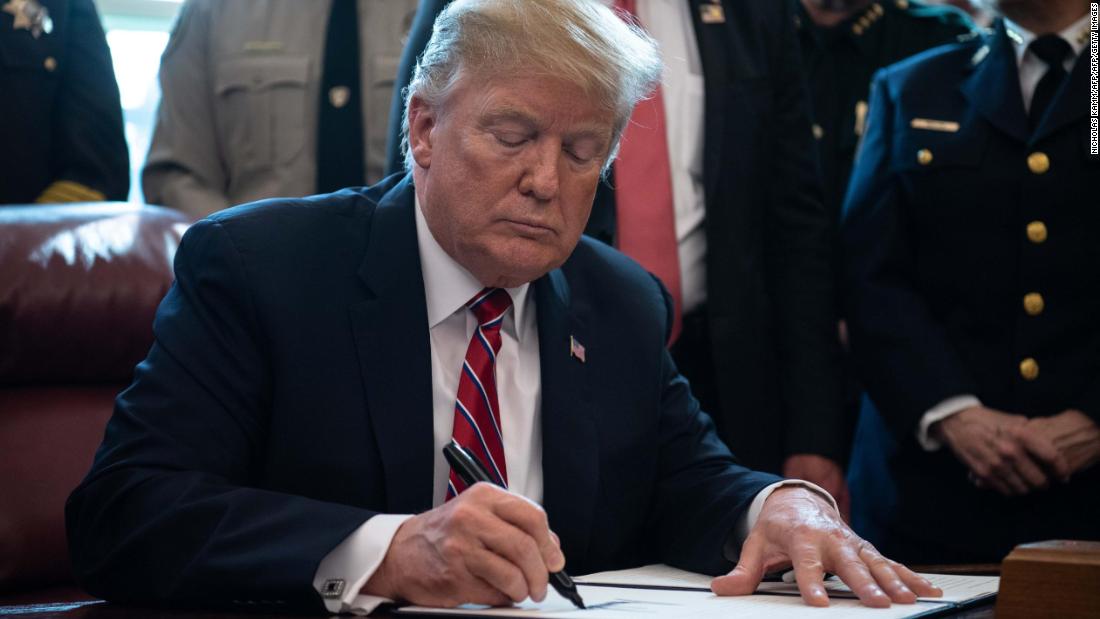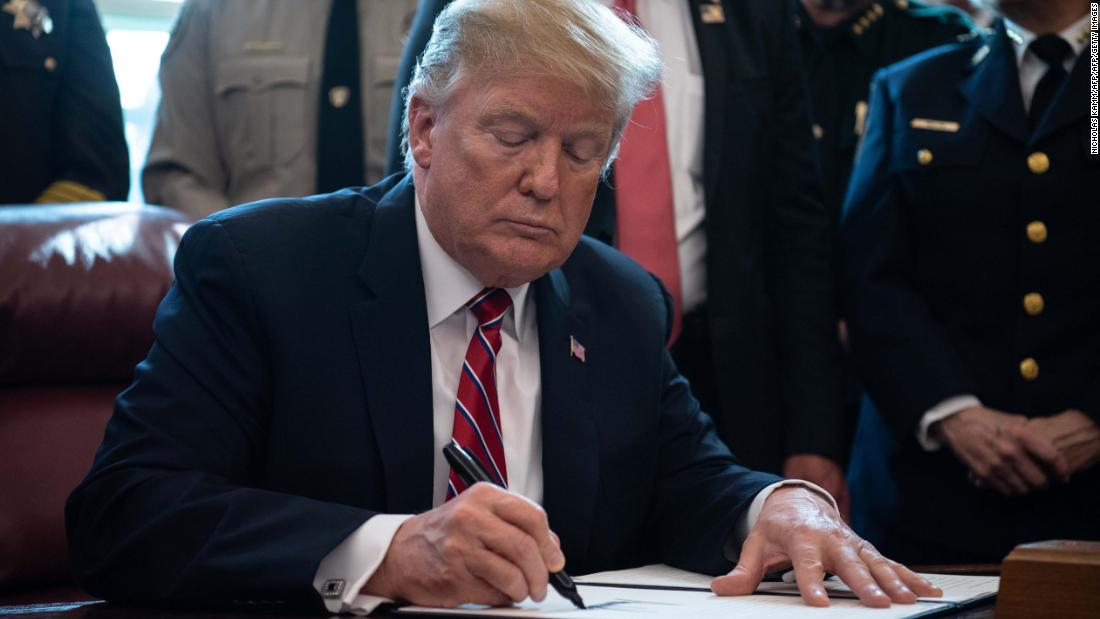

Trump is turning his pardon power into a shield
March 26, 2019
(CNN)President Donald Trump can’t stop talking about pardons. Among other news stories last week were various, sometimes conflicting, accounts about whether and when Michael Cohen may have sought a pardon. And in the wake of Paul Manafort’s second sentencing last week, the White House again refused to rule out a pardon for him; in fact, Sarah Sanders as much as said a pardon would be considered, when the President is ready.
First, a recap. What do Joe Arpaio, Scooter Libby, Jack Johnson and Dinesh D’Souza have in common? They are some of the people who have had their federal felony convictions pardoned by President Trump. Their pardons have something in common, too: They appear to have been given without much consideration, and in complete disregard of the usual process that applies to presidential pardons.
This is pardon by presidential whim.
As is often pointed out, the President has very broad pardon power pursuant to Article II of the Constitution. But the pardons the President has issued thus far demonstrate a capricious use of that power, because unlike other presidents before him, Trump has completely bypassed the Department of Justice Office of the Pardon Attorney.
The pardon office is set up to handle petitions for pardons, utilizing established procedures, standards and rules. By ignoring this, President Trump issued his pardons without the wealth of information that is usually available, and without the advice of the DOJ’s career professionals, including the prosecutors and agents who investigated and prosecuted these crimes.
Some of the President’s pardons rewarded Trump partisans like right-wing conspiracy theorist Dinesh D’Souza, and anti-immigrant former sheriff and early Trump campaigner Joe Arpaio. One pardon went to the deceased boxer Jack Johnson at the recommendation of actor Sylvester Stallone, who reportedly has attended functions at Mar-a-Lago and was reportedly considered for a White House appointment to the National Endowment for the Arts. And a sentence commutation went to Alice Marie Johnson at the behest of Kim Kardashian, whose husband, Kanye West, is a vociferous Trump supporter and MAGA hat wearer.
The pattern is the same for the rest of the pardons given so far by this President: Those without either right-wing bona fides or the personal endorsement of a Trump-friendly celebrity need not apply.
As problematic as Trump’s pardon history has been to date, however, we have entered a period of even greater danger, because the President has gone beyond using the pardon power on his personal whim, and is now using it for his personal protection.
The people who have been the subject of pardon talk, particularly Manafort, Michael Flynn and Cohen (before he publicly declared he was finished protecting the President) have some things in common, too. They are all individuals charged by the Office of the Special Counsel in investigations into wrongdoing by the President.
They all were in positions to have information that could implicate the President in crimes. (Cohen actually did testify that the President committed a crime.) And all have or had been the subject of rampant speculation — fueled by the President’s refusal to rule it out — that they may receive pardons if they refuse to cooperate with authorities.
Frankly, you need go no farther to divine the President’s motives than the fact that the Trump lawyer talking about pardons is Rudy Giuliani. Giuliani has said that Trump may use his pardon power after the Russia investigation is over.
Giuliani is not the pardon attorney, charged with handling pardon petitions, or even the White House counsel, whose job is to protect the institution of the presidency. Giuliani is Trump’s personal lawyer. Why would the President’s personal lawyer talk about pardons at all? Only one reason; because the President and his team view the presidential pardon power as a way to protect him personally from the serious and numerous investigations closing in on him.
Prosecutors rely on cooperating witnesses to make cases, particularly in complex conspiracy cases like those being handled by the special counsel. Cooperating witnesses are incentivized to provide truthful information and testimony through the possibility of sentencing reductions. If those who might be witnesses against Trump think that a pardon might be coming if they refuse to cooperate, that undercuts prosecutors’ ability to make these cases.
Sign up for our new newsletter.
And while pardons have not (yet) been issued for any of these men, much of the damage is already done. It started the moment the President refused to rule out pardons for anyone involved in any investigation implicating him because of the obvious conflict of interest that posed. The harm was greatly magnified each time the President attacked someone cooperating against him — like by calling Michael Cohen a “rat” — or praised Roger Stone as having “guts” for saying he would never testify against Trump.
We may never know how seriously the President’s abuse of the pardon power has hurt these investigations, but we do know one thing. President Trump has turned the pardon power from a tool that a president should use disinterestedly to administer justice and compassion, to a shield, used with this President’s personal interests front and center.
It’s now up to prosecutors and Congress to do something about it.
Read more: http://edition.cnn.com/



